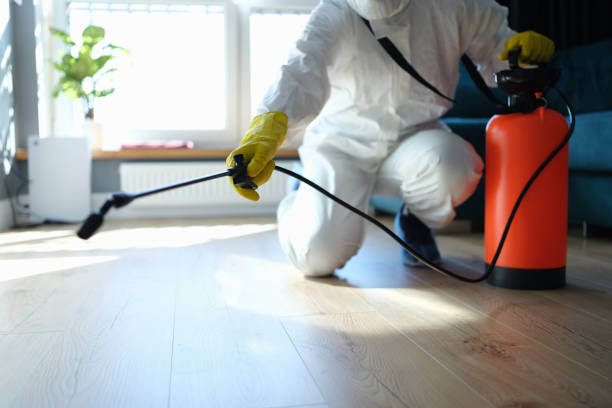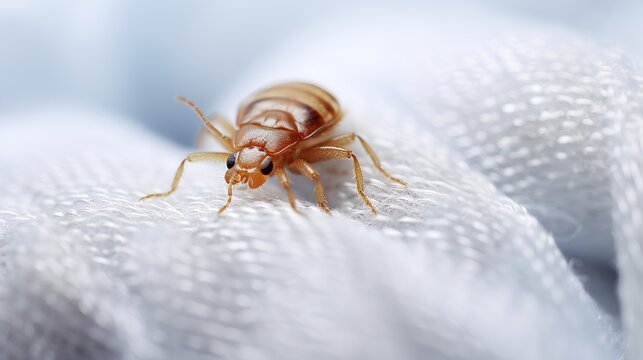How Often Should I Pest Control My House? A Comprehensive Guide for Singapore Homeowners
Pest infestations are a problem many homeowners in Singapore deal with. Whether it’s annoying ants, bothersome bed bugs, or harmful termites, these uninvited guests can do a lot of damage to your home and even put your family’s health at risk. Because of this, keeping pests under control is very important. However, one common question many people have is – how often should you get pest control done in your house? This blog post is here to answer that question and give you a detailed guide on managing pests in Singapore.
Firstly, it’s crucial to understand that the frequency of pest control depends on several factors. These include the type of pests you’re dealing with, the extent of the infestation, the size of your property, and the effectiveness of the previous pest control measures. For instance, dealing with a small ant problem might not require as frequent treatments as managing a widespread termite infestation.
Generally speaking, for most homes in Singapore, scheduling professional pest control services at least once every few months is a good practice. This regular check can help prevent minor pest issues from becoming big problems. However, if you’re facing a serious infestation, you might need more immediate and frequent interventions to get the situation under control.
Understanding the Need for Regular Pest Control
Before we delve into the frequency of pest control, it’s essential to understand why regular pest control is necessary. Pests such as cockroaches, rats, and mosquitoes are not just nuisances; they can also carry diseases that pose serious health risks to humans. Additionally, pests like termites can cause structural damage to your home that can be costly to repair.
Regular pest control helps in early detection of infestation, preventing it from escalating into a larger problem. It also ensures that your home remains safe and healthy for you and your family.
Determining the Frequency of Pest Control
The frequency of pest control largely depends on several factors:
- Type of Pest: Different pests require different frequencies of treatment. For instance, cockroaches breed rapidly and may require monthly treatments until the infestation is under control. On the other hand, termite treatments might last for several years before re-treatment is necessary.
- Severity of Infestation: If you have a severe infestation in your home, more frequent treatments may be required until the problem is fully resolved.
- Type of Property: The type of property also plays a role in determining the frequency of pest control services. For example, landed properties may require more frequent services due to their exposure to outdoor elements.
As a general rule, most professional pest control Singapore companies recommend quarterly treatments for common pests. However, it’s best to consult with a professional who can assess your situation and recommend a suitable schedule.
Benefits of Regular Pest Control
Regular pest control offers several benefits:
- Prevents Damage: Pests like termites and carpenter ants can cause severe damage to the structure of your home. Regular pest control helps detect these pests early, preventing extensive damage.
- Protects Health: Many pests carry diseases that can be harmful to humans. By controlling these pests, you’re protecting the health of your family.
- Peace of Mind: Knowing that your home is free from pests gives you peace of mind and makes your living environment more comfortable.
Choosing the Right Pest Control Singapore Service
Choosing the right pest control service in Singapore is key when you’re dealing with unwanted pests in your home. You want to make sure you’re hiring a company that knows what they’re doing, uses methods that won’t harm your family or pets, and can effectively kick those pests out for good. When searching for a pest control company, consider those that provide a wide range of services to tackle different pests, from sneaky ants to damaging termites. It’s also important that they use treatments that are effective but won’t leave harmful residues that could affect your health.
Looking into what other customers have to say about their services can give you a good idea of what to expect. Positive reviews and testimonials are good signs, showing that the company has successfully helped others with their pest problems.
In wrapping up, the number of times you need to control pests in your home depends on several things, like what kind of pests you have, how bad the infestation is, and how big your home is. Regular pest control visits are important to keep your home healthy, safe, and pest-free. By picking a trustworthy pest control service in Singapore, you can keep your home free from pesky intruders.
Don’t forget, it’s always better to stop a problem before it starts when it comes to pests. Waiting until pests have taken over isn’t the best idea. Getting professionals to check your home regularly and treat any small issues can save you a lot of trouble, money, and headaches down the road. So, remember, regular maintenance and choosing the right pest control service are your best defenses against pest invasions in Singapore.
Are Bed Bugs Common in Singapore? An Insight into Bed Bug Pest Control in Singapore
Singapore, often called the Lion City, stands out as a vibrant, bustling city known for its sparkling clean streets and very high quality of life. People from all over the world admire its lush greenery, modern architecture, and the seamless blend of different cultures. However, despite all its positives, Singapore, just like any other city on the planet, faces its share of challenges. Among these, the problem of pests, particularly bed bugs, has been a cause for concern among its residents.
Now, this brings us to an important question – are bed bugs a common issue in Singapore? It’s a question that many people, especially those living in or moving to Singapore, might wonder about. This blog post is designed to dive deep into this topic, exploring the prevalence of bed bugs in the Lion City and discussing the measures that can be taken for effective bed bug pest control.
Bed bugs are tiny, elusive pests that thrive in warm, hidden places, making homes, hotels, and even public transport perfect breeding grounds. These creatures are not just a nuisance; their bites can lead to skin rashes, allergic symptoms, and other health issues, causing considerable discomfort among those affected. Given Singapore’s tropical climate, which bed bugs find ideal, it’s reasonable to suspect that these pests could be a more common problem here than in cooler regions.
In tackling the question of their commonality in Singapore, it’s crucial to look at the factors contributing to their presence. High population density, the frequent international travel typical of a global hub like Singapore, and the local climate create the perfect storm for bed bugs to spread. Reports and complaints about bed bug infestations in residential areas, hotels, and even public spaces have highlighted this issue as a significant concern for residents and authorities alike.
Bed Bugs: A Growing Concern in Singapore
Bed bugs are tiny insects that feed on human blood, usually at night. They are elusive creatures that hide during the day and come out at night to feed. Their bites can cause skin rashes, allergic reactions and psychological effects.
In recent years, there has been a significant increase in bed bug infestations in Singapore. According to the National Environment Agency (NEA), the number of reported bed bug cases has been steadily increasing over the past decade. The rise can be attributed to increased travel, population density, and resistance to pesticides.
The Prevalence of Bed Bugs in Residential Areas
Bed bugs are not picky about their habitats; they can be found anywhere with a warm host available. However, they are most commonly found in residential areas such as HDB flats and condominiums due to their preference for human hosts.
The high-density living conditions typical of these residential areas provide an ideal breeding ground for these pests. Bed bugs can easily spread from one unit to another through cracks and crevices or hitch a ride on personal belongings.
The Role of Travel in Spreading Bed Bugs
Singapore’s status as a global hub also contributes to the prevalence of bed bugs. As people travel from one place to another, they unknowingly carry these pests with them on their luggage or clothing.
Hotels are particularly vulnerable as they have a high turnover of guests from different parts of the world. A single infested room can quickly lead to an outbreak throughout the hotel if not addressed promptly.
Bed Bug Pest Control in Singapore: The Solution
The good news is, while bed bugs are a common problem in Singapore, they can be effectively managed with professional help. Bed bug pest control in Singapore is a specialized service that involves identifying the extent of the infestation, implementing a comprehensive treatment plan, and providing advice on preventing future infestations.
Professional pest control companies use various methods to eliminate bed bugs, including heat treatment, insecticide spray, and dusting powders. They also provide advice on how to prevent future infestations by maintaining cleanliness and regularly inspecting your home for signs of bed bugs.
Choosing the Right Pest Control Service
When choosing a bed bug pest control service in Singapore, it’s essential to look for a company with a proven track record. The company should have trained professionals who understand the habits and life cycle of bed bugs and know how to eliminate them effectively.
It’s also crucial that the company uses safe and environmentally friendly methods. After all, while you want to get rid of the pests, you don’t want to harm your family or pets in the process.
Conclusion
In conclusion, while bed bugs are indeed common in Singapore due to various factors like high-density living conditions and increased travel, they can be effectively managed with professional help. If you suspect you have a bed bug problem, don’t hesitate to contact a reputable bed bug pest control service in Singapore. Remember – early detection and intervention are key to preventing a full-blown infestation.
How Do I Get Rid of Ants Permanently? Your Ultimate Guide to Ants Pest Control
Ants, those ubiquitous insects that often infiltrate homes worldwide, can be a persistent nuisance, causing disruptions and even posing threats to property and well-being. This commonplace infestation raises the imperative question: “How can one go about eliminating ants permanently?” In response to this, we present a comprehensive guide designed to offer not only straightforward but professionally sound solutions for effective ant pest control.
These diminutive yet formidable creatures, beyond their nuisance factor, have the potential to wreak havoc on property and create health risks. As such, the imperative to address ant infestations becomes paramount. This guide endeavors to furnish you with a more extensive array of practical strategies and insights, all articulated in a simple yet professional tone. By embracing these recommendations, you can embark on a journey towards creating a pest-free living environment, armed with the knowledge to mitigate and manage ant-related challenges effectively.
Understanding Ant Behavior
Before we delve into the methods of getting rid of ants permanently, it’s crucial to understand their behavior. Ants are social insects that live in colonies, which can consist of thousands or even millions of individuals. They communicate and cooperate with each other to find food and defend their colony. When an ant finds a food source, it leaves a pheromone trail for other ants to follow. This is why you often see ants moving in lines.
Understanding this intricate behavior is more than just an academic interest; it’s a critical strategy in the battle against ant infestations. By knowing how ants operate, especially their reliance on pheromone trails for communication and food gathering, we can turn their natural instincts into their vulnerability. This knowledge serves as a powerful tool in devising methods that not only disrupt these communication channels but also effectively manage and control ant populations in your environment. This approach underpins the foundation of effective ant pest control strategies, offering a beacon of hope for those seeking to reclaim their spaces from these unwelcome guests.
Preventive Measures for Ants Pest Control
Prevention is always better than cure when dealing with pests like ants. Here are some preventive measures you can take:
1. Keep Your Home Clean: The cornerstone of preventing an ant infestation within your home lies in maintaining cleanliness, particularly in areas where food and water are present. Ants, by nature, are drawn to any source of nourishment and hydration, making your living space a prime target if these resources are readily available. To counteract this, it is essential to adopt a rigorous cleaning regimen focused on your kitchen and dining areas, although it’s wise to extend these habits throughout your entire home.
2. Seal Entry Points: Check your home for cracks or holes where ants could enter from outside. Seal these entry points using caulk or other suitable materials. Upon discovering cracks, holes, or any openings that could facilitate ant entry, it is imperative to address these breaches promptly and effectively. The use of caulk, a versatile sealing compound, comes highly recommended for this purpose.
It’s important to note that sealing entry points extends beyond just the immediate foundation or lower walls of your home. Vents, utility lines, and even roofing can present opportunities for ants to enter. Therefore, a comprehensive approach, examining all potential entry points from the ground up, is essential for creating an effective barrier against ants.
3. Regularly Empty Trash Bins: Trash bins, when neglected or allowed to overflow, become significant attractants for ants. These pests are drawn to the scent of food and waste, viewing your trash bins as convenient sources of nourishment. To mitigate this risk and maintain a hygienic home environment, a disciplined approach to trash disposal is essential.
Ensuring that trash bins, especially those within the kitchen and dining areas where organic waste is prevalent, are emptied on a regular basis is a critical step. This practice should not be sporadic but rather a part of your daily routine, akin to other household chores. By preventing bins from becoming overfilled, you significantly reduce the odors and spillage that can attract ants and other pests.
4. Store Food Properly: Ants, with their persistent search for sustenance, are particularly attracted to accessible food sources. To counteract this, it is imperative to adopt food storage methods that effectively minimize the potential for exposure and attraction.
Food items, especially those that are perishable or emit strong odors, should be stored in containers that offer airtight protection. These containers not only serve to preserve the freshness and quality of the food but also act as a barrier against ants and other pests. The materials of these containers vary, ranging from glass to high-quality plastics, each providing different levels of protection and suitability for various types of food.
DIY Methods for Ants Pest Control
If you already have an ant problem at home, don’t worry! There are several DIY methods that you can try for ants pest control:
1. Vinegar Solution: Mix equal parts of white vinegar and water in a spray bottle. Spray this solution on ant trails and entry points. The strong smell of vinegar disrupts their pheromone trails and deters them.
2. Boric Acid Bait: Mix boric acid with a sweet substance like sugar water to create a bait. The ants will carry the bait back to their colony, poisoning it.
3. Diatomaceous Earth: This is a natural powder made from tiny fossilized aquatic organisms. It’s non-toxic for humans and pets but lethal for ants. Sprinkle it around areas where you’ve seen ants.
Professional Ants Pest Control Services
While DIY methods can be effective, they might not always provide a permanent solution, especially if you have a large or persistent ant infestation. In such cases, it’s best to hire professional ants pest control services.
Professionals have access to powerful pesticides and equipment that can eliminate an entire ant colony effectively and safely. They also have the knowledge and experience to identify different ant species and tailor their approach accordingly.
Moreover, professional pest control services often provide guarantees, ensuring that if the ants return within a certain period, they will treat your home again for free.
Conclusion
Getting rid of ants permanently requires understanding their behavior, taking preventive measures, using effective DIY methods or hiring professional services when necessary. Remember that each ant infestation is unique; what works for one situation may not work for another.
Therefore, don’t get discouraged if your first attempt at ants pest control doesn’t yield immediate results. Keep trying different methods until you find what works best for your situation or consider seeking professional help if the problem persists.
By following these steps, you’ll be well on your way to living an ant-free life!





